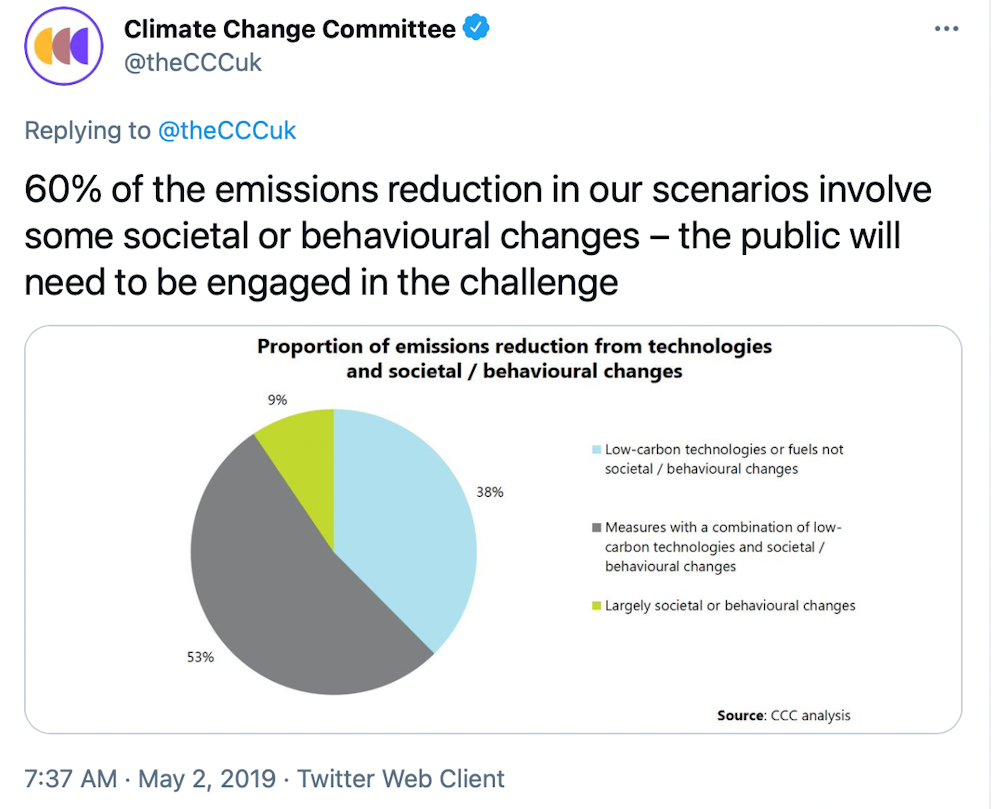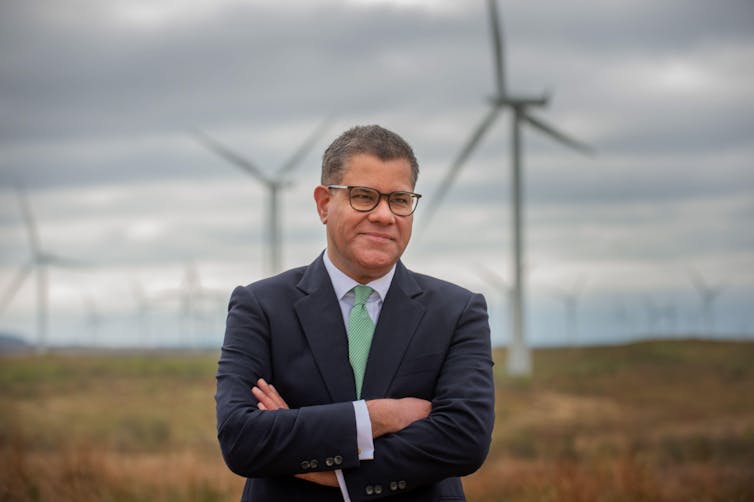How world leaders’ high-carbon travel choices could delay climate action
21 June 2021Steve Westlake, School of Psychology
When UK prime minister Boris Johnson took a one-hour flight to Cornwall for the G7 summit, he was criticised for being the latest example of a world leader sending the wrong signals through their travel choices. Rather than being the only practical choice, or an oversight, taking the plane appeared to be deliberate and symbolic, as revealed by Johnson’s response to those questioning it:
If you attack my arrival by plane, I respectfully point out that the UK is actually in the lead in developing sustainable aviation fuel. One of the points in the 10-point plan of our green industrial revolution is to get to jet zero as well as net zero.
The message seems clear and perhaps comforting to some: behaviour change is not necessary because future technical advances and innovation will solve the climate crisis. Yet social scientists are producing more and more evidence that personal actions by politicians and other high-profile figures can have a big impact on how the rest of us view and act on climate change. Indeed, Johnson may actually slow down climate progress by signalling that behavioural changes are not on his agenda.

Johnson is far from alone when it comes to scrutiny about appropriate modes of travel. US climate envoy John Kerry once took a private jet to a climate conference in Iceland to receive an award as a climate leader. He said, “This is the only choice for somebody like me.”
When Alexandria Ocasio-Cortez was accused of hypocrisy for taking Uber rides instead of the train she had a point when she said: “Living in the world as it is isn’t an argument against working towards a better future.” British MP Alok Sharma, president of this year’s upcoming UN climate change conference (COP26), was defended by many in the environmental movement recently after a newspaper story highlighted his extensive international air travel rather than conducting meetings via video link.

These cases are all subtly different, and often criticisms come in bad faith from those looking to undermine climate action by painting climate leaders as hypocrites. After all, it’s reasonable to argue that when leaders are travelling to advance action on climate change, criticising their mode of travel is a distraction.
Indeed, such tactics that focus on individuals rather than systemic issues have been highlighted as one of several discourses of climate delay. But dismissing outright the symbolism of leaders’ travel choices is a mistake, not least because transport emissions continue to rise.
People take behavioural cues from leaders
To explore how personal action by leaders influences public perceptions, I have conducted focus groups as part of my PhD research. My preliminary results reveal that the public fully understand political leaders have tight schedules and their activities inevitably involve plenty of high-carbon activities such as air travel.
But people are also very sensitive to the details of each specific situation and alert to signals and behavioural cues from leaders. Context is crucial.
My focus groups included discussion of a situation where a senior politician took a helicopter to a climate event. The politician was roundly criticised in the focus groups because it showed he was “not willing to put his front foot forward and actually lead by example” according to one participant. As with the G7 meeting, the fact that climate change was one of the primary reasons for the journey, and alternative travel was available, was deemed relevant and symbolic.
As part of my PhD I have also carried out a survey which found that people who read about a hypothetical leader who had reduced their carbon footprint were more likely to themselves adopt low-carbon actions, compared to another group surveyed who read about a leader who hadn’t taken personal action yet.
Much more dramatic were the “second-order beliefs” about the leader – in other words, what people believe the leader believes. Politicians or celebrities who walk the talk are perceived as caring more about climate change, knowing more about climate change, believing climate change is more serious, being more personally committed to tackling climate change, being more effective climate leaders, and are more popular.
This builds on previous research that shows climate advocates are more credible if they walk the talk, along with evidence that second-order beliefs are central to the influence of those advocating pro-environmental actions. The upshot is that, when Boris Johnson flies to a climate change event instead of taking lower-carbon options, many will question whether he really believes climate change is serious.
At a time when trust in politicians is low, and the urgency of climate action could barely be higher, this could matter a lot. If our leaders are not perceived as fully committed, will they be able to take the public with them as the need for behaviour change becomes more and more pressing?
In fairness to Johnson, his position is consistent. He defended his flight not by saying it was unavoidable but by saying there is no need to avoid air travel because the UK is developing low-carbon aviation technology. In other words, choosing to fly now is OK because tech and innovation will make it low carbon in the (distant) future.
This is a well-established and popular line of reasoning that has been shown to rely on “technology myths” – optimism about future tech that provides a moral license for the continuation of high-carbon activities, and is an example of politicians “taming” climate change by shielding the public from potentially uncomfortable realities.
The techno-fix route is of course more palatable for politicians and elites because it avoids facing difficult decisions about the drastic cuts in emissions that are necessary and how these could affect wealthy lifestyles. But relying on technology alone is not consistent with the science, and such messages may delay climate progress if the public believes their leaders are not serious.
This article is republished from The Conversation under a Creative Commons license. Read the original article.
- June 2024
- March 2024
- February 2024
- November 2023
- September 2023
- June 2023
- May 2023
- January 2023
- December 2022
- November 2022
- October 2022
- September 2022
- July 2022
- May 2022
- April 2022
- January 2022
- December 2021
- November 2021
- August 2021
- July 2021
- June 2021
- February 2021
- January 2021
- November 2020
- October 2020
- September 2020
- August 2020
- July 2020
- June 2020
- April 2020
- March 2020
- February 2020
- January 2020
- December 2019
- November 2019
- October 2019
- September 2019
- August 2019
- July 2019
- June 2019
- May 2019
- April 2019
- March 2019
- February 2019
- January 2019
- December 2018
- November 2018
- October 2018
- September 2018
- August 2018
- July 2018
- June 2018
- May 2018
- April 2018
- March 2018
- February 2018
- Biosciences
- Careers
- Conferences
- Development
- Doctoral Academy Champions
- Doctoral Academy team
- Events
- Facilities
- Funding
- Humanities
- Internships
- Introduction
- Mental Health
- PGR Journeys
- Politics
- Public Engagement
- Research
- Sciences
- Social Sciences
- Staff
- STEM
- Success Stories
- Top tips
- Training
- Uncategorized
- Wellbeing
- Working from home